

Insider GCSE creative writing tips + 106 prompts from past papers
by Hayley | Mar 9, 2023 | Exams , Writing | 0 comments
Are you feeling a little bit twitchy about your child’s English GCSE writing task?
Sciences and humanities – although sometimes daunting in their content – seem a fair bet as ‘revisable’ topics. But the creative writing element of the English Language GCSE is less knowable and ultimately more of a frightening prospect for a student keen to do well.
Preparing for the GCSE writing task? You don’t need to do it alone.
We run a weekly online writing club which prepares students to write high-scoring content. Our “Higher” level club is designed to transform your writing so that you can ace the GCSE language paper.
What is the GCSE writing element of the GCSE Language Paper?
There are 5 key GCSE exam boards: AQA , OCR , Pearson Edexcel , WJEC Eduqas and CCEA . Each board sets their own papers which may appear much the same at first glance (bizarrely they all have a similar front cover layout and fonts). Certainly there is plenty of overlap between their mark schemes and the comments and tips they share in their Examiner Reports.
However, as with all your child’s other subjects, it is essential to know which exam board they are preparing for. You may be surprised to discover that schools pick and choose boards by subject, perhaps choosing AQA for chemistry and OCR for mathematics. Individual school departments have their own preferences. My brother teaches at a school where their English Literature and English Language exams have been split between two different boards. This is unusual though, not the norm!
What forms (question formats) can the test take?
It varies by board.
The AQA board has a writing task in their Question Paper 1 called Explorations in creative reading and writing . Students are given two prompts to choose between. The AQA board also has a second persuasive writing task in Paper 2 called Writers’ viewpoints and perspectives.
Jump ahead to AQA creative writing and persuasive writing prompts from past GCSE papers
The Pearson/Edexcel international iGCSE favoured by many UK private schools has two prompts to choose between for each section. The student is asked to complete a piece of transactional writing (perhaps a persuasive speech or an advertisement leaflet) and additionally a piece of imaginative writing.
Jump ahead to Pearson/Edexcel transactional writing and imaginative writing prompts from past GCSE papers
Interestingly, the WJEC Eduqas board favours non-fiction writing. Unit 2 Reading and Writing: Description, Narration and Exposition gives two prompts to choose between, for an account and an essay perhaps, and Unit 3: Reading and Writing: Argumentation, Persuasion and Instructional sets up a letter, or similar.
Jump ahead to WJEC Eduqas non-fiction writing prompts from past GCSE papers
The OCR board offers two prompts to choose between. One might be a talk for other students and the other might be a letter on a difficult subject .
Jump ahead to OCR creative writing prompts from past GCSE papers
The CCEA board has a writing task in called “ Writing for Purpose and Audience and Reading to Access Non-fiction and Media Texts” and a second writing task which offers a choice between personal writing and creative writing.
Jump ahead to CCEA persuasive writing, personal writing, and creative prompts from past GCSE papers
How long do students have to craft their piece of writing?
Creative writing tests are timed at either 45 minutes or 1 hour. The last thing your child will need is to prepare to write for an hour, only to find they have just three-quarters of an hour on the day. If in doubt, insist that they check with their teacher.
AQA students are given 45 minutes to produce their writing response. The introduction advises: ‘ You are reminded of the need to plan your answer. You should leave enough time to check your work at the end.’ What this means is that 30–35 minutes max is what’s really allowed there for the writing itself.
Pearson/Edexcel allows 45 minutes for each of the two writing tasks.
OCR students are given an hour to complete this section of their exam. The introduction states: ‘You are advised to plan and check your work carefully,’ so they will expect the writing itself to take 45–50 minutes.
How long should the completed GCSE writing task be?
Interestingly, although the mark schemes all refer to paragraphingthey don’t state how many paragraphs they expect to see.
‘A skilfully controlled overall structure, with paragraphs and grammatical features used to support cohesion and achieve a range of effects’ (OCR)
‘Fluently linked paragraphs with seamlessly integrated discourse markers’ (AQA)
Why? Because management of paragraph and sentence length is a structural technique available to the student as part of their writers’ toolkit. If the number of optimal paragraphs were to be spelled out by the board, it would have a negative impact on the freedom of the writer to use their paragraphs for impact or to manage the pace of the reader.
For a general guide I would expect to see 3 to 5 paragraphs in a creative piece and 5 paragraphs in a persuasive piece. Leaflets have a different structure entirely and need to be set out in a particular form to achieve the top notes of the mark scheme.
What are the examiners looking for when they are marking a student’s creative writing paper?
There are two assessment objectives for the writing itself:
- It has to be adapted to the form, tone and register of writing for specific purposes and audiences.
- It has to use a range of vocabulary and sentence structures, with appropriate paragraphing, spelling, punctuation and grammar.
As a GCSE English nerd, I really enjoy delving deeper into the Examiner Reports that each board brings out once the previous cohort’s papers have been marked. They are a fascinating read and never disappoint…
Within their pages, examiners spell out the differences they have spotted between the stronger and the weaker responses.
For example, a creative task set by the AQA board was to describe a photograph of a town at sunset. The examiners explained that some of the strongest responses imagined changes in the scene as darkness descended. They enjoyed reading responses that included personification of the city, and those that imagined the setting in the past, or the weariness of the city. Weaker candidates simply listed what was in the picture or referred directly to the fact it was an image. This chronological-list approach weakened the structure of their work.
No surprises that some weaker students relied heavily on conversation. (As an exam marker myself, I dreaded reading acres of uninspiring direct speech.)
Pearson/Edexcel explain that weaker persuasive pieces (in this case on the value of television) simply listed pros and cons rather than developed ideas fully to clarify their own opinions. The higher-level responses here were quirky and engaging, entertaining the reader with a range of appropriate techniques and making the argument their own.
What accommodations are possible for students who have specific learning difficulties?
The UK Government’s Guide for Schools and Colleges 2022: GCSE, AS and A Levels includes information about changes to assessments to support ‘disabled students.’ Their definition of disabled includes specific learning difficulties (dyslexia, dyspraxia, ADHD, ADD, ASD etc).
Exam boards can make a wide range of adjustments to their assessments. Some of the most common adjustments are:
- modified papers (for example, large print or braille exam papers)
- access to assistive software (for example, voice recognition systems or computer readers)
- help with specific tasks (for example, another person might read questions to the student or write their dictated answers)
- changes to how the assessment is done (for example, an oral rather than a written assessment, word-processing rather than hand-writing answers)
- extra time to complete assessments
- exemptions from an assessment
The exam board will expect paperwork to be in place where your child’s specific needs are formally reported by an appropriate professional (Educational Psychologist, Clinical Psychologist, Consultant). The report needs to be recent, but how recent is difficult to confirm.
If your child is likely to need adjustments to their access arrangements you will need to discuss this with their school in plenty of time before the exam itself.
A close friend of mine realised in the final few weeks before her son’s GCSE exams that his tinnitus would have a negative impact on his performance. She approached the school to ask if he might take his exams in a separate room to minimise noise disturbance. Unfortunately, it was far too late by then to apply, and her son was denied the request.
Your child’s school will explain the process for applying for special arrangements and will be able to advise you on what your expectations should be. Never presume your child will be given what they need – but plenty of requests are successful, so stay positive and make sure your paperwork is in order beforehand.
Tips and strategies for writing a high scoring GCSE creative writing paper:
1. learn the formats.
Know the different formats and conventions of the different GCSE writing tasks. There is a standard layout for a leaflet, for example, where including contact details and a series of bullet points is part of the mark scheme. Not knowing these conventions will knock back a student’s score.
2. Plan ahead
Prepare a planning structure for each of the written forms you might encounter during the exam. It may need to be flexed on the day, but it will banish fear of the blank page and allow you to get started.
3. Prepare sentence-openings
Familiarise yourself with appropriate sentence-openings for each type of GCSE writing task. Fronted adverbials of time and place will improve the quality of a creative piece, whereas access to varied and specific conjunctions might push up the mark of a transactional piece.
4. Check your speaking
Ask your family to check your speech at home. Every now and then try to flip a sentence into formal language, using more interesting synonyms for your usual spoken vocabulary. This will help you to write formally on paper, avoiding colloquialisms.
5. Forget finishing
Finishing is less important than you might imagine. Sloppy, hurried work is your enemy. GCSE examiners will follow your clear planning and mark you accordingly, even if you’ve not managed to complete that final paragraph.
6. Note the details
The question often gives additional information the examiner would like to see included. Note it in your plan to make sure it doesn’t get forgotten.
7. Start strong
Use your best sentence-opener at the start of each paragraph. It will set you up as someone to be taken seriously.
8. Cut back dialogue
Keep dialogue contained in a single paragraph. Focus on description of the speaker and their actions before noting the second character’s reply.
9. Revise
Do this by prepping work as above. Nothing beats it.
Would you like me to transform your child’s writing in my higher writing club?
Each week in my higher writing club , we spend 20 minutes on Zoom together. After the task has been introduced, the students write for 15 minutes. Next, they upload their work for 1:1 video marking.
There is no point prepping essays/creative pieces for the GCSE English Language exam if your child’s writing is poor. First, their scruffy presentation, attention to detail, punctuation, grammar and vocabulary need to be addressed.
After 2 months in the higher writing club your child’s written technique and fluency will be transformed by our 1–2-1 video marking system (consistent messaging is achieved by matching your child with their own teacher).
Each weekly activity is drawn directly from the GCSE English Language Subject Content and Assessment Objectives , published by the English Department of Education.
Here’s an example of a student’s writing, BEFORE they joined our club:

It is chaotic, poorly-presented and nonsensical. Letter-sizing is confused and the student is clearly anxious and repeatedly scribbling through small errors.
Below is the same student 2 months later:

Observe the rich vocabulary, authorial techniques (the jagged rocks are ‘like shards of broken glass’) and general fluency and sophistication.
Real and recent GCSE example questions/prompts from each of the 5 key exam boards
Aqa english language gcse questions, paper 2 writers’ viewpoints and perspectives:.
- ‘Our addiction to cheap clothes and fast fashion means young people in poorer countries have to work in terrible conditions to make them. We must change our attitude to buying clothes now.’ Write an article for a magazine or website in which you argue your point of view on this statement. ( Source )
- ‘People have become obsessed with travelling ever further and faster. However, travel is expensive, dangerous, damaging and a foolish waste of time!’ Write an article for a news website in which you argue your point of view on this statement. ( Source )
- ‘Cars are noisy, dirty, smelly and downright dangerous. They should be banned from all town and city centres, allowing people to walk and cycle in peace.’ Write a letter to the Minister for Transport arguing your point of view on this statement. ( Source )
- ‘All sport should be fun, fair and open to everyone. These days, sport seems to be more about money, corruption and winning at any cost.’ Write an article for a newspaper in which you explain your point of view on this statement. ( Source )
Paper 1 Explorations in creative reading and writing:
- A magazine has asked for contributions for their creative writing section. Either write a description of an old person as suggested by the picture below or write a story about a time when things turned out unexpectedly. ( Source )

- Your school or college is asking students to contribute some creative writing for its website. Either, describe a market place as suggested by the picture below or write a story with the title, ‘Abandoned’. ( Source )

- Your local library is running a creative writing competition. The best entries will be published in a booklet of creative writing. Either, write a description of a mysterious place, as suggested by the picture below or write a story about an event that cannot be explained. ( Source )

- A magazine has asked for contributions for their creative writing section. Either, describe a place at sunset as suggested by the picture below or write a story about a new beginning. ( Source )
OCR English Language GCSE questions
Paper: communicating information and ideas.
- Either, Write a post for an online forum for young people about ‘A moment that changed my life’.
- Or, You are giving a talk at a parents’ information evening about why all children should study science at school. Explain your views. ( Source )
- Either, Write a letter to a friend to describe a challenging and unpleasant task you once had to do.
- Or, Write a short guide for new workers about how to deal successfully with difficult customers. ( Source )
- Either, “Was it worth it?” Write an article for a magazine to describe a time when you had to do something difficult.
- Or, Write a speech for an event to congratulate young people who have achieved something remarkable. ( Source )
- Either, Write the words of a talk to advise pet owners how to make life more enjoyable for their pet and themselves.
- Or, Write an article for a travel magazine to describe your dramatic encounter with an animal. ( Source )
- Either, ‘How I prefer to spend my time.’ Write the words of a talk to young people about your favourite activity
- Or, Write a magazine article to persuade parents to allow their teenage children more freedom. You are not required to include any visual or presentational features. ( Source )
- Either, Write a talk for other students about a person you either admire strongly or dislike intensely
- Or, Write a letter to a friend to explain a difficult decision you had to make. ( Source )
Paper: Exploring effects and impact
- Either, Hunger satisfied. Use this as the title for a story.
- Or, Write about a time when you were waiting for something. ( Source )
- Either, The Taste of Fear Use this as the title for a story.
- Or, Write about a time when you were exploring a particular place. ( Source )
- Either, Alone. Use this as the title for a story.
- Or, Describe a time when you found yourself in a crowd or surrounded by people. ( Source )
- Either, Land at Last. Use this as the title for a story.
- Or, Imagine you have visited somewhere for the first time and are now reporting back on your experience. ( Source )
- Either, The Playground Use this as the title for a story
- Or, Write about a memory you have of playing a childhood game. ( Source )
- Either, It seemed to me like I had been magically transported. Use this as the title for a story.
- Or, Describe a place where you have felt comfortable. ( Source )
Pearson Edexcel English Language iGCSE questions
Paper 1: transactional writing.
- Either, ‘In our busy twenty-first century lives, hobbies and interests are more important than ever.’ Write an article for a newspaper expressing your views on this statement.
- Or, ‘We are harming the planet we live on and need to do more to improve the situation.’ You have been asked to deliver a speech to your peers in which you explain your views on this statement. ( Source )
- ‘ Zoos protect endangered species from around the world.’ ‘No wild animal should lose its freedom and be kept in captivity. Write an article for a magazine in which you express your views on zoos.
- Write a review of an exciting or interesting event that you have seen. ( Source )
- Your local newspaper has published an article with the headline ‘Young people today lack any desire for adventure’. Write a letter to the editor of the newspaper expressing your views on this topic.
- ‘The key to success in anything is being prepared.’ Write a section for a guide giving advice on the importance of preparation. ( Source )
- You and your family have just returned from a holiday that did not turn out as you expected. Write a letter to the travel agent with whom you booked your holiday, explaining what happened.
- A magazine is publishing articles with the title ‘Friendship is one of the greatest gifts in life’. Write your article on this topic. ( Source )
- ‘Important lessons I have learned in my life.’ You have been asked to deliver a speech to your peers on this topic.
- Your local/school library wants to encourage young people to read more. Write the text of a leaflet explaining the benefits of reading. ( Source )
- ‘Most memorable journeys.’ A website is running a competition to reward the best articles on this subject. Write an article for the competition about a memorable journey.
- ‘Cycling is one form of exercise that can lead to a healthier lifestyle.’ Write a guide for young people on the benefits of exercise. ( Source )
- ‘Television educates, entertains and helps global understanding.’ ‘Television is to blame for society’s violence and greed and delivers one-sided news.’ You have been asked to deliver a speech in which you express your views and opinions on television.
- ‘Choosing a career is one of the most important decisions we ever make.’ Write the text of a leaflet that gives advice to young people on how to choose a career. ( Source )
- Write the text for a leaflet aimed at school students which offers advice on how to deal with bullying.
- A museum is planning to open a new exhibition called ‘Life in the Twenty-First Century’. ( Source )
Paper 2: Imaginative writing
- Write about a time when you, or someone you know, enjoyed success
- Write a story with the title ‘A Surprise Visitor’.
- Look at the two images below. Choose one and write a story that begins ‘I did not have time for this’ ( Source )

- Write about a time when you, or someone you know, challenged an unfair situation.
- Write a story with the title ‘Bitter, Twisted Lies’.
- Look at the two images below. Choose one and write a story that begins ‘It was a new day …’ You may wish to base your response on one of these images. ( Source )

- Write about a time when you, or someone you know, visited a new place.
- Write a story with the title ‘The Storm’
- Look at the two images below. Choose one and write a story that ends ‘I decided to get on with it.’ ( Source )

- Write about a time when you, or someone you know, saw something surprising.
- Write a story with the title ‘The Meeting’.
- Look at the two images below. Choose one and write a story that starts ‘Suddenly, without warning, there was a power cut.’ ( Source )

- Write about a time when you, or someone you know, went on a long journey.
- Write a story with the title ‘A New Start’
- Look at the two images below. Choose one and write a story that begins ‘I tried to see what he was reading. ( Source )

- Write about a time when you, or someone you know, felt proud.
- Write a story with the title ‘The Hidden Book’.
- Look at the two images below. Choose one and write a story that begins ‘It was like a dream’ ( Source )

- Write about a time when you, or someone you know, had to be brave
- Write a story with the title ‘Everything Had Changed’
- Look at the two images below. Choose one and write a story that begins ‘It was an unusual gift’. ( Source )

WJEC Eduqas English Language GCSE questions
Unit 2 reading and writing: description, narration and exposition.
- Write an account of a time when you enjoyed or hated taking part in an outdoor activity.
- “It’s essential that more people are more active, more often.” (Professor Laura McAllister, Chair of Sport Wales) Write an essay to explain how far you agree with this view, giving clear reasons and examples. ( Source )
- Describe an occasion when you did something you found rewarding.
- Famous chefs such as Jamie Oliver and Mary Berry have spoken of the need for better food and better education about food in schools. Write an essay to explain your views on this subject, giving clear reasons and examples. ( Source )
- Write an account of a visit to a dentist or a doctor’s surgery.
- NHS staff, such as doctors and nurses, provide excellent service in difficult circumstances. Write an essay to explain your views on this subject, giving clear reasons and examples. ( Source )
- Write an article for a travel magazine describing somewhere interesting that you have visited.
- You see the following in your local newspaper: ‘Young people are selfish. They should all be made to volunteer to help others.’ Write an essay to explain your views on this subject, giving clear reasons and examples. ( Source )
- Describe an occasion when technology made a difference to your life.
- Write an account of a time you were unwilling to do something. ( Source )
- Describe a time when you faced a challenge
- Write an essay explaining why charity is important, giving clear reasons and examples. ( Source )
- Write an account of a time when you did something for the first time.
- “It’s time for us to start making some changes. Let’s change the way we eat, let’s change the way we live, and let’s change the way we treat each other.” Tupac Shakur Write an essay on the subject of change, giving clear reasons and examples. ( Source )
- “School uniform is vitally important in all schools.” Write an essay explaining your views on this, giving clear reasons and examples.
- Describe a time when you had to create a good impression. ( Source )
Unit 3: Reading and writing: Argumentation, persuasion and instructional
- Your school/college is considering using more Fairtrade items in its canteen. Although this will help to support Fairtrade farmers, it will mean an increase in the price of meals. You feel strongly about this proposal and decide to write a letter to your Headteacher/Principal giving your views. ( Source )
- Increasing litter levels suggest we have lost all pride in our beautiful country. Prepare a talk for your classmates in which you give your opinions on this view. ( Source )
- Write a guide for other students persuading them to stay safe when using social media and the internet. ( Source )
- According to your PE teacher, ‘Swimming is the very best form of exercise.’ You have been asked to prepare a talk for your classmates in which you give your views about swimming. ( Source )
- You read the following in a newspaper: ‘Plastic is one of the biggest problems faced by our planet. Why would we use something for a few minutes that has been made from a material that’s going to last forever?’ Write a letter to the newspaper giving your views on the use of plastic. ( Source )
- “People today never show enough kindness to one another. We must make more effort to be kind.” Write a talk to give on BBC Wales’ new programme Youth Views persuading young people to be kind to others. ( Source )
- ‘We have enough problems in the world without worrying about animals.’ Write an article for the school or college magazine giving your views on this statement.
- You would like to raise some money for an animal charity. Write a talk for your classmates persuading them to donate to your chosen charity. ( Source )
CCEA English Language GCSE questions
Unit 1: writing for purpose and audience and reading to access non-fiction and media texts.
- Write a speech for your classmates persuading them to agree with your views on the following issue: “Young people today are too worried about their body image.” ( Source )
- Write an article for your school magazine persuading the readers to agree with your views on the following question: “Should school uniform have a place in 21st century schools?” ( Source )
- Write a speech for your classmates persuading them to agree with your views on the following question: “Are celebrities the best role models for teenagers?” ( Source )
- Write an article for your school magazine persuading the readers to agree with your views on the following statement: “Advertising is just another source of pressure that teenagers don’t need!” ( Source )
Unit 4: Personal or creative writing and reading literacy and non-fiction texts
- Either, Personal writing: Write a personal essay for the examiner about what you consider to be one of the proudest moments in your life.
- Or, Creative writing: Write your entry for a creative essay writing competition. The audience is teenagers. You may provide your own title. ( Source )
- Write a personal essay for the examiner about an experience that resulted in a positive change in your life.
- Write a creative essay for the examiner. The picture below is to be the basis for your writing. You may provide your own title. ( Source )

- Personal writing: Write a speech for your classmates about the most interesting person you have ever met.
- Creative writing: Write a creative essay for your school magazine. The picture below is to be the basis for your writing. You may provide your own title. ( Source )

- Personal writing: Write a personal essay for the examiner describing your dream destination.
- Creative writing: Write a creative essay for publication in your school magazine. The picture below is to be the basis for your creative writing. You may provide your own title. (Source)

Get 1:1 support and personalized feedback on your GCSE creative writing practice
For 1–2-1 writing support for your pre-GCSE child, join the Griffin Teaching Higher Writing Club—online weekly writing classes specifically tailored to English GCSE creative writing preparation.
In just 20 minutes per week and their writing will be transformed.
- kirstienglishtutor
English Language GCSE: Your Step-By-Step Guide to Creative Writing
Are you preparing for your English language GCSE creative writing task? Feeling a mixture of excitement and anxiety about how to channel your creativity into a structured piece of writing that ticks all the boxes for examiners? You're not alone. Creative writing can seem daunting, but with the right approach and understanding, you can craft a story that not only captivates but also earns you top marks. This guide will walk you through the process of developing your narrative, from the initial brainstorming phase to the final touches before 'pens down'!

Understanding the Assessment Criteria
Before embarking on your creative writing journey, gaining a comprehensive understanding of the assessment criteria is imperative. The evaluators of your English language GCSE creative writing piece will scrutinise several key areas: the coherence of your narrative structure, range of ideas you explore, the variety and complexity of your sentence structures, and the precision of your spelling, punctuation, and grammar. Familiarity with these standards is not just a prerequisite but a strategic tool; it enables you to tailor your creative efforts to meet these benchmarks. As you proceed with each stage of your writing, keep these criteria at the forefront of your mind. They serve as a guiding framework, ensuring that every element of your piece, from the initial plot conception to the final dialogue, contributes towards a cohesive, engaging, and technically proficient narrative. Remember, understanding what is expected is the first step to excelling in your creative writing question.

Finding Your Inspiration
We often talk about 'cultural capital' and how evident it is in the most engaging creative pieces we read when examining. Cultural capital is all around you: let curiosity be your guide, leading you through books that span genres and eras, conversations that challenge and provoke, and the rich tapestry of everyday life. Engage with various forms of art - cinema, paintings, music - to stimulate your senses and uncover fresh perspectives. Record fleeting thoughts, overheard conversations, or the peculiarities of a typical day in a dedicated notebook. This reservoir of ideas will become an invaluable resource to tap into in the exam. Always remember, the seeds of great stories lie in the willingness to explore and the readiness to be inspired by the world around you.
Planning Your Story
After identifying a spark of inspiration, it's crucial to channel that energy into a structured plan for your piece. Crafting an outline is essential, so don't skip the plan! Examiners can always spot an unplanned piece as it will fall apart somewhere around the middle. You only have 50 minutes:: you have time to write a moment, not a movie. Imagine a fascinating five minutes in the picture you've been given as stimulus. Plan a conflict, a contrast or a change that could happen within the five minutes. Remember, a well-thought-out plan not only acts as a roadmap for your writing but also ensures that your narrative remains coherent and compelling from start to finish.
Crafting Descriptive Settings
The environment where your narrative unfolds plays a pivotal role in immersing your audience in the world you’ve created. To craft settings that captivate, employ descriptive language that appeals to the senses. Envision your scene's sights, sounds, smells, and textures, and articulate these in your writing to conjure vivid imagery. Consider the emotional tone your setting imparts; a bustling city street can exude energy and possibility, whereas a secluded forest path might evoke tranquillity or mystery. Reflect on how the environment influences your characters’ actions and decisions, adding depth to your story. A well-drawn setting acts not merely as a backdrop but as a character in its own right, with the power to affect mood, reveal aspects of your characters, and even steer the narrative’s direction. Through thoughtful description, your settings can become memorable landscapes that linger in the reader’s mind long after they've turned the final page.
Don't skip the final five minute check
It feels very tempting to write to the last second but I implore you not to. Even if your spelling, punctuation and grammar is already perfect, the last second tweaks and edits you make could take you from one grade into the next.
Found this helpful? You can sign up for my creative writing guided revision session here .
Recent posts.
5 simple steps to analysing quotations

Using Ambitious Vocabulary for 11+ Creative Writing Success
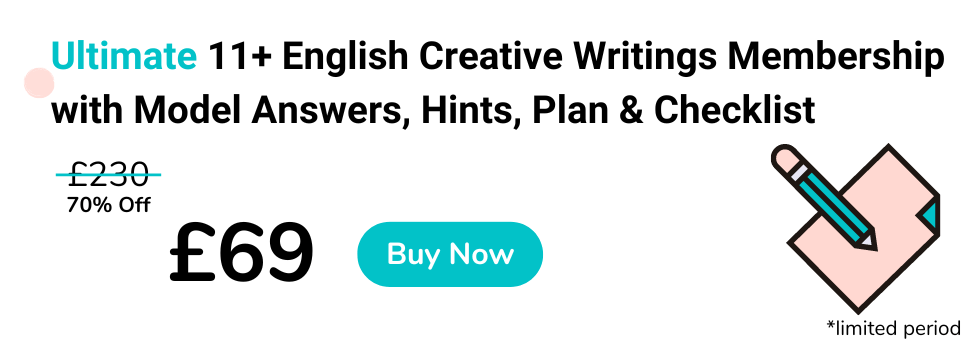
As a writer, it's essential to have a strong vocabulary that can help you express your ideas and evoke emotions in your readers. Ambitious vocabulary refers to the use of sophisticated and impressive words in writing. Using ambitious vocabulary can help you stand out from the crowd and make your writing more engaging and memorable.
In this article, we will explore what ambitious vocabulary is, provide examples of ambitious vocabulary, discuss techniques for incorporating it into your writing, and highlight common mistakes to avoid.
What is Ambitious Vocabulary?
Ambitious vocabulary refers to words that are not commonly used in everyday language but are more complex and sophisticated. These words can include sensory words, vivid verbs, similes and metaphors, personification, and alliteration. Using ambitious vocabulary can help you create a vivid and memorable image in your reader's minds and engage them in your story.
Examples of Ambitious Vocabulary
Using Sensory Words
Sensory words can help create a sensory experience for your readers. By using words that describe how things look, smell, sound, taste, or feel, you can transport your readers to the scene you're describing. For example, instead of saying "the flowers were beautiful," you can say "the delicate petals of the vibrant flowers swayed in the gentle breeze, releasing a sweet, intoxicating fragrance."
Using Vivid Verbs
Vivid verbs can help you create a more active and engaging sentence. Instead of using generic verbs like "walked" or "ran," you can use verbs that are more descriptive and specific. For example, instead of saying "he walked to the store," you can say "he sauntered down the street, taking in the sights and sounds of the bustling city."
Using Similes and Metaphors
Similes and metaphors can help you make your writing more descriptive and interesting by comparing two seemingly unrelated things. For example, instead of saying "the sunset was beautiful," you can say "the sky was ablaze with fiery colors, like a canvas painted by a master artist."
Using Personification
Personification involves giving human characteristics to non-human things. This technique can help you make your writing more creative and engaging. For example, instead of saying "the wind was blowing," you can say "the mischievous wind whispered secrets as it danced through the trees."
Using Alliteration
Alliteration involves using the same sound at the beginning of multiple words in a sentence. This technique can help you make your writing more rhythmic and memorable. For example, instead of saying "the rain was heavy," you can say "the relentless rain rattled against the roof."
Techniques to Incorporate Ambitious Vocabulary in 11 Plus Creative Writing
Understanding the Context
Understanding the context is crucial when using ambitious vocabulary. Make sure the words you use to fit the tone and style of your writing. Using overly complex words can confuse your readers and make your writing feel forced.
Reading Widely
Reading widely can help you expand your vocabulary and give you inspiration for using ambitious vocabulary in your writing. Try to read a variety of genres and styles to expose yourself to different writing styles and techniques.
Using a Thesaurus
A thesaurus can be a valuable tool for finding synonyms for commonly used words. However, be careful not to overuse it or use words that you're not familiar with.
Practicing Writing Prompts
Practicing writing prompts can help you incorporate ambitious vocabulary into your writing in a low-stress environment. Use prompts to experiment with different writing styles and techniques and try incorporating ambitious vocabulary into your writing.
Editing and Revising
Editing and revising your writing can help you identify areas where you can use more ambitious vocabulary. Go back through your writing and look for opportunities to replace common words with more sophisticated and impressive ones. Remember, editing and revising are essential steps in the writing process and can help you refine your work.
Common Mistakes to Avoid
While using ambitious vocabulary can enhance your writing, it's essential to avoid common mistakes that can detract from your work. Here are a few mistakes to avoid:
Overusing complex words
Using too many complex words can make your writing difficult to read and understand. Use ambitious vocabulary sparingly and only when it adds to the tone and style of your writing.
Using words you're not familiar with
Using words you're not familiar with can make your writing feel forced and inauthentic. Make sure you understand the meaning and context of the words you use.
Using the wrong word
Using the wrong word can change the meaning of your sentence and confuse your readers. Make sure you use words that fit the context and meaning of your writing.
Using ambitious vocabulary can help you elevate your writing and make it more engaging and memorable. By using sensory words, vivid verbs, similes and metaphors, personification, and alliteration, you can create a more descriptive and engaging narrative. Remember to understand the context, read widely, use a thesaurus, practice writing prompts, and edit and revise your work. Avoid common mistakes like overusing complex words, using words you're not familiar with, and using the wrong word. By incorporating ambitious vocabulary into your writing, you can gain full marks in 11 plus creative writing and make your work stand out from the crowd.
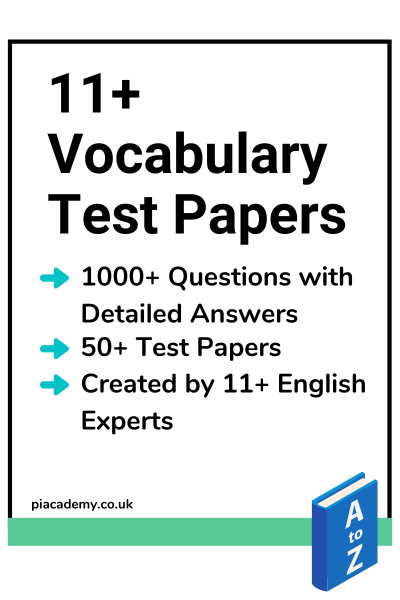
Dear Parent, Before You Leave...

Subscribe to Newsletter
** Get 10% off coupon code on your first order, valid sitewide.
PiAcademy Partners

Follow us on

More than 20,000 registered members!
Exam papers.
© 2014 - 2024 PiAcademy Limited, All Rights Reserved
- English KS3
- English GCSE
- English A-Level
- Complete packs
- English revision
- Back to school
- End of term
- Student and parent
- FREE Resources
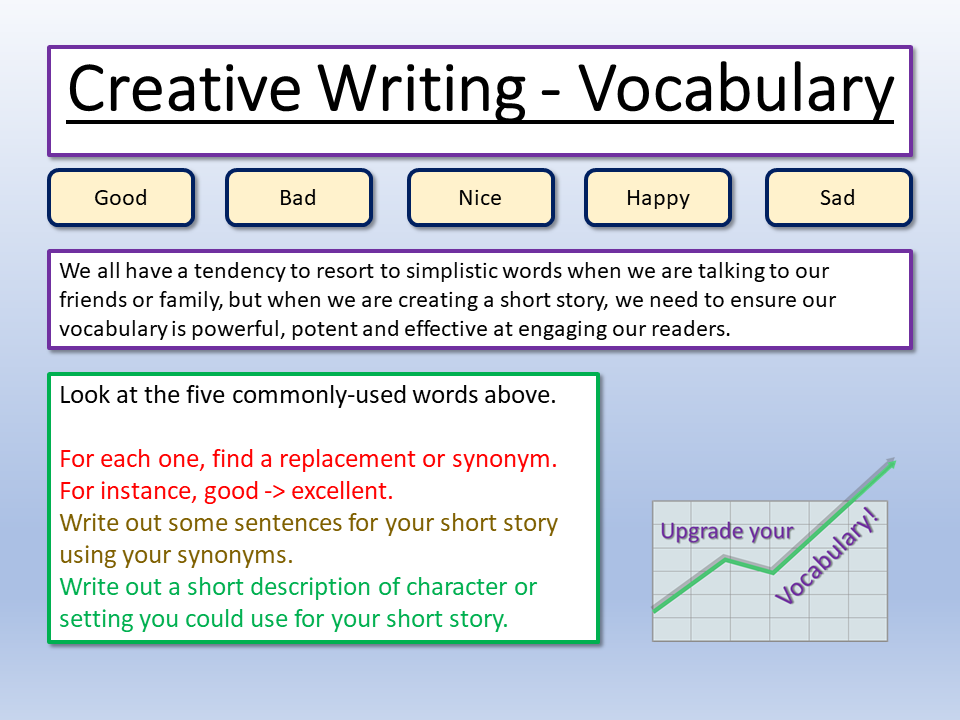
Creative Writing Vocabulary
- Add to cart
- Description
Creative writing vocabulary lesson that explores how to use vocabulary to introduce new characters. Includes a model example, detailed teacher and student notes, engaging tasks, differentiated materials, and a huge range of adjectives for students to adapt and adopt into their own creative writing.
A useful lesson for both KS3 and GCSE English Literature and English Language students.
Includes differentiated activities, source materials, engaging tasks and extensive student and teacher notes.
Related Products
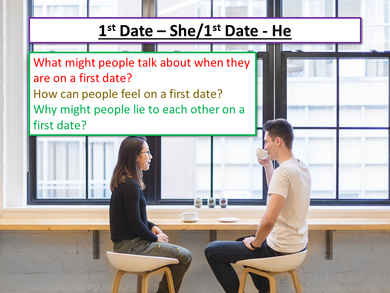
1st Date - She/1st Date - He Poem
EnglishGCSE.co.uk
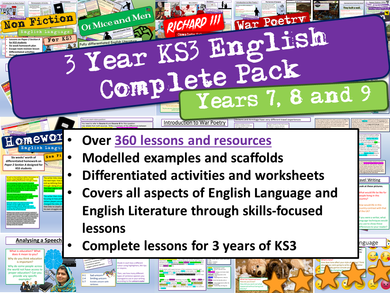
Complete Pack
3 Year English KS3 Complete Pack
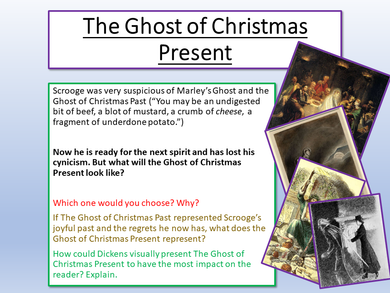
A Christmas Carol - The Ghost of Christmas Present
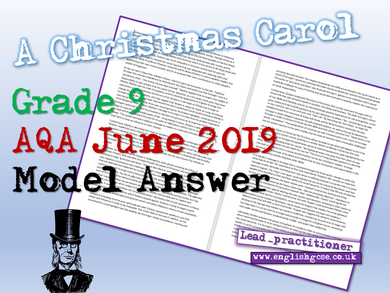
Model Answer
A Christmas Carol 2019 Model Answer
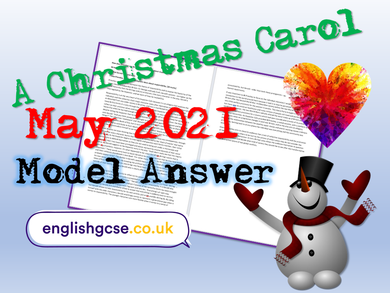
A Christmas Carol 2021 Model Answer
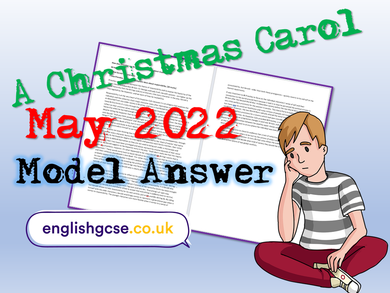
A Christmas Carol 2022 Model Answer
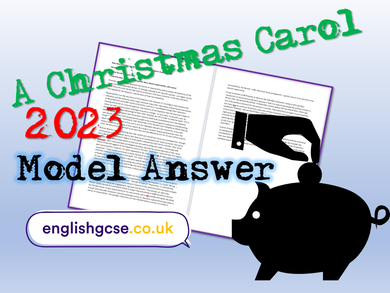
A Christmas Carol 2023 Model Answer
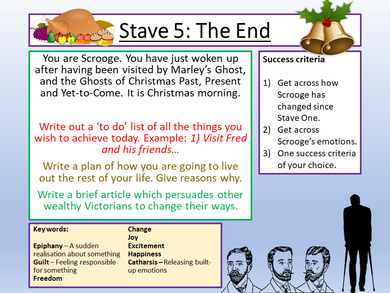
A Christmas Carol Stave Five
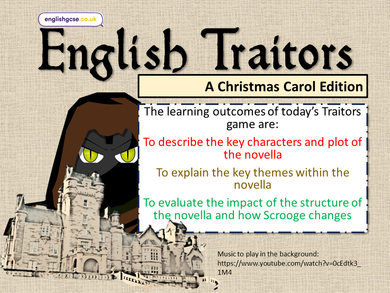
A Christmas Carol The Traitors
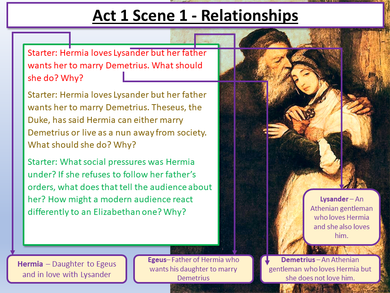
A Midsummer Night's Dream - Act 1 Scene 1 Relationships
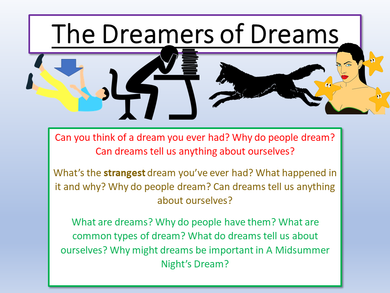
A Midsummer Night's Dream - Dream Theme
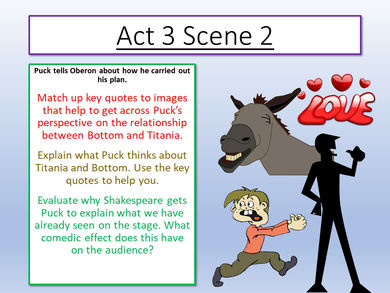
A Midsummer Night's Dream Act 3 Scene 2

A Midsummer Night's Dream Act 4 Scene 1
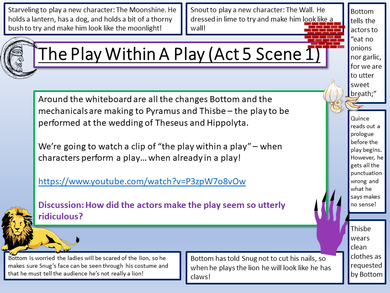
A Midsummer Night's Dream Act 5 Scene 1
Added to your cart:
Sample Product
- International
- Schools directory
- Resources Jobs Schools directory News Search

AQA 8700/1 GCSE English Language Creative Writing Starters
Subject: English
Age range: 14-16
Resource type: Worksheet/Activity
Last updated
21 February 2021
- Share through email
- Share through twitter
- Share through linkedin
- Share through facebook
- Share through pinterest

Just something fun and engaging that kids have played all over the world - Boy/Girl is something I’ve turned into a vocabulary builder - hope your students like it!
There’s also a Boring Sentences challenge which has served as a differentiated worksheet - challenging students with perhaps adding in one or two descriptive words and others: all of them. I also get them to research synonyms and try to get even more advanced words than those on the sheet.
Now, there is also a more advanced Boring Sentences group challenge included.
Hope you find them useful!
Creative Commons "Sharealike"
Your rating is required to reflect your happiness.
It's good to leave some feedback.
Something went wrong, please try again later.
leckypostbox
Empty reply does not make any sense for the end user
I almost wish I'd seen what it looked like prior to changes. A good little pair of free starters. Thanks for sharing!
Lovely interactive and challenging starters. The students find them a challenge, but they do develop vocabulary.
wordsmithDFA
Some of my groups did find them challenging, also. I've simplified the game in hope that it is more enjoyable as a result. Thanks for the feedback! =-)
Report this resource to let us know if it violates our terms and conditions. Our customer service team will review your report and will be in touch.
Not quite what you were looking for? Search by keyword to find the right resource:

IMAGES
VIDEO
COMMENTS
4 words to describe the sky. inky; overcast; dim; colourless. 4 verbs for shouting. shriek; roar; yell; bellow. 7 verbs for talking quietly. whisper; buzz; mumble; murmur; mutter; sigh; breathe. Study with Quizlet and memorize flashcards containing terms like 5 words for bright, 2 words for walking slowly, 4 words for walking lightly and more.
GCSE; AQA; Vocabulary - AQA Expanding your vocabulary. Make your writing interesting and lively by using a wide range of vocabulary. Use specific words to convey your meaning.
A range of worksheets and activities aimed at building ambitious vocabulary for different purposes. £4.00. See more. Report this resource to let us know if it violates our terms and conditions. Our customer service team will review your report and will be in touch. Not quite what you were looking for?
Unit 2 Reading and Writing: Description, Narration and Exposition gives two prompts to choose between, for an account and an essay perhaps, and Unit 3: Reading and Writing: Argumentation, Persuasion and Instructional sets up a letter, or similar. Jump ahead to WJEC Eduqas non-fiction writing prompts from past GCSE papers.
Narration - the voice that tells the story, either first person (I/me) or third person (he/him/she/her). This needs to have the effect of interesting your reader in the story with a warm and ...
Writing: Crafting Creative Writing revision for GCSE English Language. All the revision you need in one place for your exam. ... Students should use a range of vocabulary and sentence structures for clarity, purpose and effect in their writing. ... Next GCSE English Language Topic Writing: Creative Language Use. Contact Details. 020 3633 5145 ...
What's included in this GCSE Creative Writing Questions Full Unit Pack? Lesson 1 - Structure. Lesson 2 - Narrative Voice. Lesson 3 - Describing Place. Lesson 4 - Describing Characters. Lesson 5 - Character Dialogue. Lesson 6 - Sentences and Vocabulary. Lesson 7 - Pacing. Lesson 8 - Writing From a Prompt.
AO6 (16 marks) Use a range of vocabulary and sentence structures for clarity, purpose and effect, with accurate spelling and punctuation. Overview. Question 5 is a writing question. Question 5 is worth 40 marks. You should aim to write 5-7 paragraphs. You should spend approximately 45 minutes on this question.
Are you preparing for your English language GCSE creative writing task? Feeling a mixture of excitement and anxiety about how to channel your creativity into a structured piece of writing that ticks all the boxes for examiners? You're not alone. Creative writing can seem daunting, but with the right approach and understanding, you can craft a story that not only captivates but also earns you ...
The register (vocabulary and phrasing) is suitable for the purpose; The style of the writing (sentence structure and overall structure) is dynamic and engaging; Below you will find a detailed creative writing model in response to an example of Paper 1 Question 5, under the following sub-headings (click to go straight to that sub-heading):
Collection of vocabulary building lessons that look at how and why students can and should develop their use of words within their own writing. The lessons help students to see the significance of synonyms and the power of prefixes and suffixes, as well as providing examples. Very useful for both AQA English Language Paper 1 and AQA English ...
Ambitious vocabulary refers to words that are not commonly used in everyday language but are more complex and sophisticated. These words can include sensory words, vivid verbs, similes and metaphors, personification, and alliteration. Using ambitious vocabulary can help you create a vivid and memorable image in your reader's minds and engage ...
Writing fiction - AQA. Writing fiction is an opportunity to come up with creative and original ways of using language. You might find inspiration from your own experiences or from your imagination.
Creative writing vocabulary lesson that explores how to use vocabulary to introduce new characters. Includes a model example, detailed teacher and student notes, engaging tasks, differentiated materials, and a huge range of adjectives for students to adapt and adopt into their own creative writing. A useful lesson for both KS3 and GCSE English ...
Reviews. Creative writing vocabulary lesson that explores how to use vocabulary to introduce new characters. Includes a model example, detailed teacher and student notes, engaging tasks, differentiated materials, and a huge range of adjectives for students to adapt and adopt into their own creative writing. A useful lesson for both KS3 and GCSE ...
Creative Writing Masterclass - Vocabulary. This is a lively and engaging resource developing students' word choices and general vocabulary skills. Ideal in preparing students for GCSE English Language Paper 1, Section B. The full scheme of work is available to purchase for just £5.
Writing, or dialogue in drama, that makes the writer's ideas more meaningful, descriptive or memorable. Includes metaphors, similes, hyperbole, personification, onomatopoeia and oxymoron. Foreshadowing Clues suggesting the outcome of a story (but not when the outcome is deliberately revealed through the use of a narrator or flashback).
showing courteous regard for people's feelings. demure. shy or modest, often in a playful or provocative way. deride. treat or speak of with contempt. despot. a cruel and oppressive dictator. diligent. quietly and steadily persevering in detail or exactness.
Download the colouring sheet. Find out more by working through a topic. Expand your creative writing vocabulary with these learning resources for KS1 English students aged 5-7 from BBC Bitesize.
AQA 8700/1 GCSE English Language Creative Writing Starters. Subject: English. Age range: 14-16. Resource type: Worksheet/Activity. File previews. docx, 369.71 KB. pdf, 395.21 KB. docx, 130.87 KB. Just something fun and engaging that kids have played all over the world - Boy/Girl is something I've turned into a vocabulary builder - hope your ...